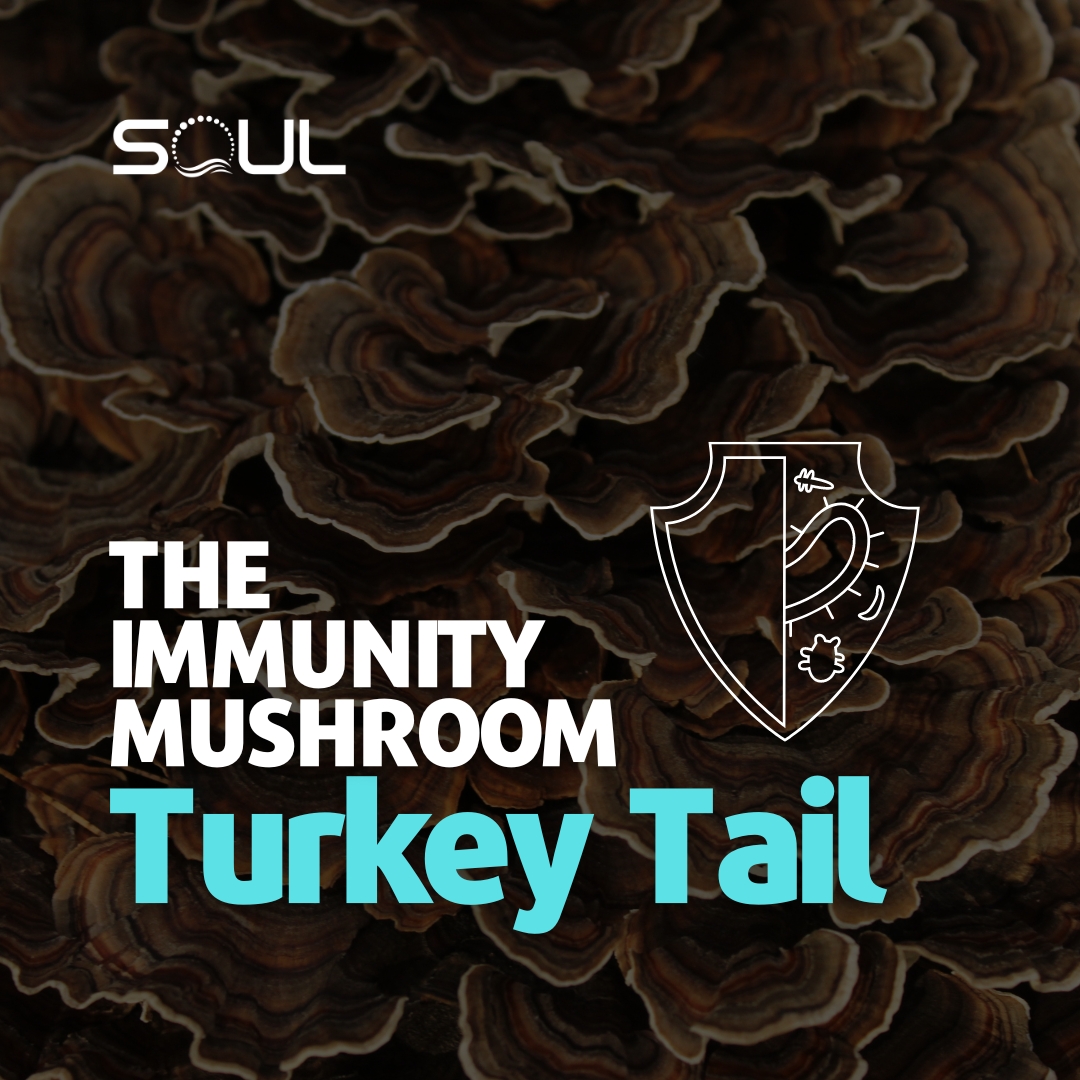
The Timeless Power of Turkey Tail Mushrooms: A Masterpiece of Nature’s Pharmacy
In the shadowed realms of decaying trees, nature has sculpted an astonishing asset: Trametes versicolor, or as they’re more commonly known, turkey tail mushrooms. These fan-shaped, multicolored fungi blanket deadwood, proudly displaying their bands of earthy brown, azure blues, and ruddy reds, as if nature painted each cap by hand. They’re not just a visual feast; these mushrooms have wielded powerful medicinal properties for thousands of years. They’ve served as quiet warriors in traditional medicine, defending health since ancient times, and now they’re capturing the spotlight in modern science.
Ancient Wisdom Meets Modern Science
Step back into the ancient medicinal practices of China and Japan, and you’ll find the humble turkey tail featured prominently. For at least two millennia, these mushrooms have been brewed, consumed, and celebrated for their immune-enhancing abilities. Their presence in classic texts serves as a testament to their revered status in Eastern medicine. Yet, it’s not just history that lends them credibility. Turkey tail mushrooms contain powerful polysaccharides, complex sugars nestled within their cell walls, which, as recent studies suggest, may amplify immune responses and even support the body in battling cancer. These sugars engage our immune cells, prompting them to take action, like a well-timed rally cry to the body’s internal defenses.
The Mechanism Behind the Magic: Polysaccharides at Work
The magic lies in a particular group of polysaccharides—specifically polysaccharide K (PSK) and polysaccharide-peptide (PSP). Think of them as the mushroom’s secret agents, tasked with immune surveillance. These compounds have been observed to modulate immune responses, especially in challenging circumstances. Mechanistically, they activate macrophages and natural killer cells, nudging the body’s front-line defenders to recognize and neutralize foreign invaders more effectively. Imagine your immune system as an orchestra: PSK and PSP direct each section, ensuring perfect harmony as it confronts pathogens or malignancies. Preliminary research even suggests PSK’s potential as an adjuvant in cancer therapy, helping to amplify the effects of chemotherapy while minimizing side effects.
Nutritional Richness: Fueling the Body’s Foundations
Turkey tail mushrooms are more than immune-boosters; they’re nutritional powerhouses. Laden with fiber and protein, these fungi support digestion and cell repair. They also bring a decent dose of vitamin D, crucial for strong bones and immune resilience, alongside a suite of antioxidants that act as vigilant guardians against oxidative stress. Here, too, mechanistic conjecture offers insight: antioxidants in turkey tail mushrooms neutralize free radicals, stabilizing cellular membranes and potentially reducing inflammation at the cellular level. It’s like having a built-in cellular defense, protecting cells from the relentless tide of wear and tear, promoting longer-lasting vitality from within.
Bringing Turkey Tail Into the Modern Diet
While turkey tail mushrooms have a slightly bitter, woody taste, they’re versatile in the kitchen. In soups, stews, and teas, they add depth, their earthy flavors balancing well with spices and herbs. For those who prefer a direct route, capsules and powders offer a convenient way to integrate turkey tail’s benefits without altering your favorite recipes. With the steady rise of medicinal mushroom supplements, turkey tail mushrooms have become a cornerstone, celebrated for both their ancient roots and forward-looking promise.
A Tradition Worth Preserving
There’s a reason these mushrooms have held such an enduring presence in the medicinal realm. Their role as a natural ally to health underscores a truth that modern science is finally embracing: sometimes, nature’s simplest solutions hold the most profound power. As we delve deeper into research, the therapeutic potential of turkey tail mushrooms is likely to grow. Until then, their time-tested role in traditional medicine serves as a powerful reminder: sometimes, the answers to health have been lying beneath our feet—or growing on the trunk of a forgotten tree—all along.
In a world swarming with wellness fads and fleeting trends, turkey tail mushrooms are a nod to the timeless. They aren’t just mushrooms; they’re ancient allies in the quest for a balanced, resilient life. So, here’s to adding a little of this earthy, dependable wisdom to our diets.
These statements have not been evaluated by the Food and Drug Administration. This product is not intended to diagnose, treat, cure or prevent any disease. This article is for informational purposes only and is not a substitute for professional medical advice. Always consult your healthcare provider regarding any health concerns or before starting new supplements.
